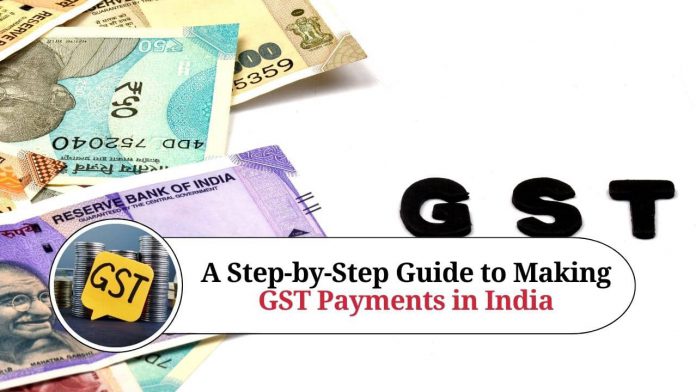Goods and Services Tax (GST) is a value-added tax that is levied on the supply of goods and services in India. It is a comprehensive tax system that replaces all indirect taxes in the country. GST has become an integral part of the Indian economy and has been implemented with the aim of simplifying the tax system and reducing the cascading effect of taxes. In this blog, we will discuss the process of GST payment in detail.
Who is eligible to pay GST?
GST is applicable to all businesses that are engaged in the supply of goods or services and have an annual turnover above the prescribed limit. As per the GST Act, businesses with an annual turnover of up to Rs. 20 lakhs (10 lakhs for the north-eastern states and Himachal Pradesh) are exempt from registering under GST. However, businesses with an annual turnover above the prescribed limit are required to register for GST and pay GST on the supplies made.
Read Other Useful Blogs:
How to make GST payments?
GST payment can be made through several methods, including online payment, challan payment, and payment by debit/credit card.
- Online Payment: The easiest and quickest way to make a GST payments is through the GST Portal. Businesses can log in to the GST Portal using their GSTIN and password, and make the payment by selecting the relevant tax head, entering the tax amount, and making the payment through a debit/credit card or net banking.
- Challan Payment: Businesses can also make GST payments by visiting a bank and filling out a challan. The bank will issue a receipt, which the business can keep as proof of payment.
- Debit/Credit Card Payment: Businesses can make GST payment using a debit/credit card through the GST Portal. The payment can be made by selecting the relevant tax head, entering the tax amount, and making the payment through a debit/credit card.
Conclusion
In conclusion, GST payment is a crucial aspect of the Indian tax system, and businesses must make sure to make the payment on time to avoid penalties and late fee charges. Businesses can choose from several methods of making GST payments, including online payment, challan payment, and payment by debit/credit card. By making GST payment on time, businesses can ensure compliance with the GST Act and maintain a good reputation in the market.
Read More: GST Full Form
It is important to note that GST payments must be made periodically, as per the due dates specified by the government. Businesses must file their GST returns and pay the tax liability on time to avoid any penalties or interest charges. The frequency of GST payments depends on the turnover of the business and the type of registration (regular or composition scheme).
For regular businesses, GST payments must be made on a monthly or quarterly basis, depending on the turnover. On the other hand, businesses registered under the composition scheme are required to make GST payments on a quarterly basis. The GST returns must be filed and the tax liability must be paid within 20 days from the end of the relevant tax period.
GST payments can be made for several tax heads, including CGST (Central Goods and Services Tax), SGST (State Goods and Services Tax), and IGST (Integrated Goods and Services Tax). The type of tax head applicable depends on the nature of the supply and the place of supply.
It is important for businesses to keep proper records of their GST payments and returns. This helps in maintaining transparency and ensuring compliance with the GST Act. Businesses must also make sure to keep a copy of the receipt or acknowledgement of the GST payment for future reference.
Frequently Asked Questions (FAQs) on GST Payment:
Q.1) Who is eligible to pay GST?
GST is applicable to all businesses that are engaged in the supply of goods or services and have an annual turnover above the prescribed limit. As per the GST Act, businesses with an annual turnover of up to 20 lakhs (10 lakhs for north-eastern states and Himachal Pradesh) are exempt from registering under GST.
Q.2) How can I make GST payments?
GST payments can be made through several methods, including online payment, challan payment, and payment by debit/credit card.
Q.3) What is the frequency of GST payments?
The frequency of GST payments depends on the turnover of the business and the type of registration (regular or composition scheme). For regular businesses, GST payments must be made on a monthly or quarterly basis, depending on the turnover. Businesses registered under the composition scheme are required to make GST payments on a quarterly basis.
Q.4) What are the different tax heads under GST?
GST payments can be made for several tax heads, including CGST (Central Goods and Services Tax), SGST (State Goods and Services Tax), and IGST (Integrated Goods and Services Tax). The type of tax head applicable depends on the nature of the supply and the place of supply.
Q.5) Is it necessary to keep a record of GST payments and returns?
Yes, it is important for businesses to keep proper records of their GST payments and returns. This helps in maintaining transparency and ensuring compliance with the GST Act.
Q.6) What happens if I don’t make GST payments on time?
If GST payments is not made on time, businesses may be charged penalties and interest, and their reputation may be impacted.
Q.7) Can I make GST payments through the GST Portal?
Yes, businesses can make GST payments through the GST Portal by logging in using their GSTIN and password, and making the payment through a debit/credit card or net banking.
Q.8) What should I do if I face any issues while making GST payments?
If businesses face any issues while making GST payments, they can contact the GST helpdesk for assistance. The helpdesk can be reached through email, phone, or chat.




















